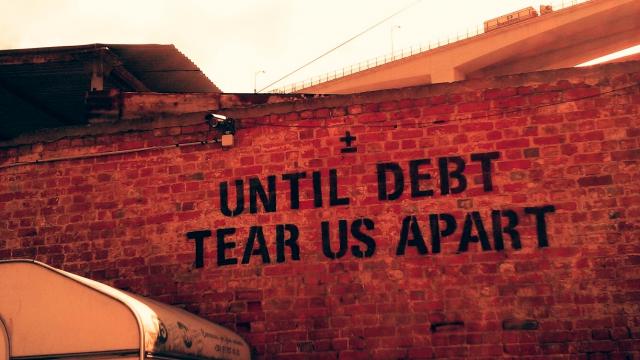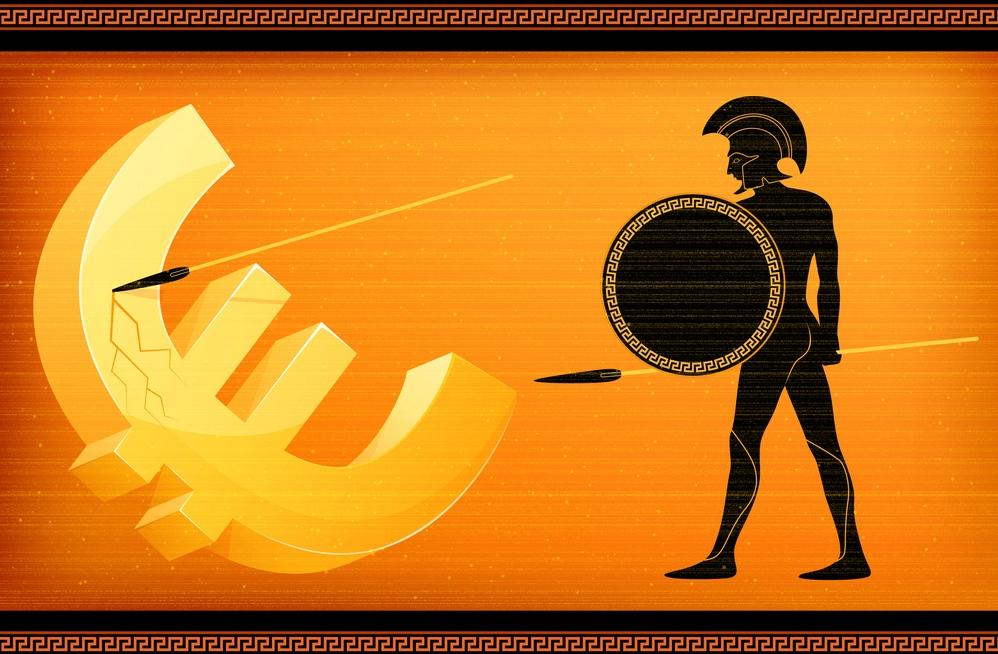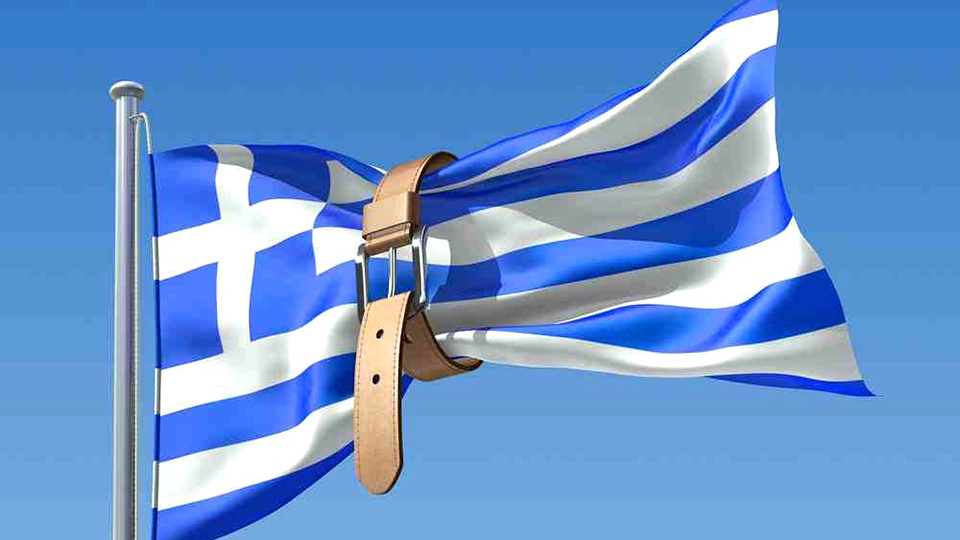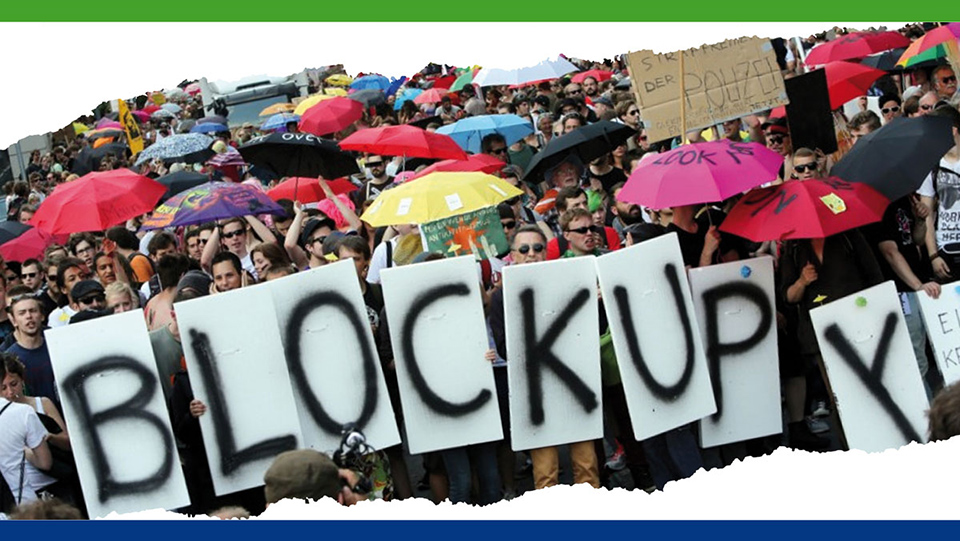
Neoliberalism erodes democracy and people’s sovereignty: this is the defiant message from the pan-European Troika Party, an irony-steeped political party that has announced its run for the European Union parliamentary elections in May 2014. The party's slogans include, “Vote for us and you will never have to vote again!” and “Democracy is not competitive!”
Set to formally launch in January 2014, the Troika Party aims to become a rallying point across the continent against the current economic direction forced by austerity policies. “The campaign is a tool to raise awareness and dismantle the current neoliberal narrative, unpacking Troika’s role in European decision making,” one of the Troika Party’s organizers, Emma Avilés, told Occupy.com.
From Madrid, Avilés works on collective projects within the 15M movement, formerly dubbed by the media as the Indignados. “There is not a focus on who to vote [for] or not voting," she added. "We aim at people rethinking the concept of democracy.”
The party takes its name from the trio alliance – the European Commission, European Central Bank and the International Monetary Fund – which has determined the bailout and austerity packages imposed on southern European countries in recent years, widely seen as devastating those nations' social programs in favor of rescuing the banks that gambled away and indebted their economies.
Due to the bailouts, Greece is regarded to be suffering the worst humanitarian disaster in peacetime Europe. Spain, Portugal, Italy and Ireland are all suffering severely, too. The bailouts encapsulate northern Europe’s reaction to the financial crisis – a demand for belt-tightening austerity measures that include public service cuts, workers' rights reductions and slashed wages – all of which are deepening already entrenched economic inequality. The International Federation of Red Cross and Red Crescent Societies reports that austerity has caused Europe’s worst humanitarian crisis in 60 years.
As strategy goes, the Troika Party looks to build on the "Can’t pay, won’t pay" slogan which calls into legitimacy the dominant narrative of the international debt crisis: that countries are expected to pay back to the financial industry the debts that banks and corrupt, irresponsible governments were responsible for incurring. The Troika Party points out that the countries cannot afford to pay off these debts, even if they were legitimate.
“There is a big difference between understanding the crisis as something inevitable and our fault, then accepting austerity measures, the loss of rights and the undermining of democracy,” continued Avilés. “On the other hand, we want people to read it in a different light: the crisis as a 'scam' with specific actors that move the strings and benefit from it.”
The current, neoliberal economic structure is widely blamed as the key factor behind the Eurozone debt crisis –a contention forwarded inan academic paper by economists at London's School of Oriental and African Studies, which addresses how the Eurozone’s financial architecture is “protecting the interests of financial capital” and “facilitating the dominance of Germany at the expense of the Eurozone.”
In the fallout of the sub-prime mortgage crisis that spread to Europe, the scholars say investors saw Greece as an easy target and suggest the European Central Bank should have stopped “speculators playing destabilizing games.” Furthermore, the paper catalogues the ways austerity is causing poverty and recession in Europe's peripheral countries – meaning the debts are even less likely to be repaid.
"Short-selling," they contend, is one mechanism that deepened Greece’s troubles greatly. In times of crisis, speculators can short-sell financial assets and deepen a crisis by fueling panic and financial hysteria. This is done simply by borrowing assets, immediately selling them for a high price, then buying back those assets at a lower price. Looking at Greece’s crisis, now in its fifth year, the Financial Timesreports it was not only hedge funds that were responsible, but banks, insurance and pension companies which profited greatly as Greece’s debts escalated.
The Greek Credit Default Market is a key example. It was in the interests of the holders of these financial assets for Greece to default, as a default meant they got paid out. This credit default market’s value rose sharply in the run-up to Greece’s default. Worse still, from the perspective of the ensuing humanitarian catastrophe in Greece, the impacts of the credit default market created more panic sharpening the crisis.
A dominant power creates consent by shaping what people think of as “common sense,” according to the political philosopher Antonio Gramsci. In turn, Gramsci suggested that hierarchies can be challenged by undermining their myths. The notion of redefining common sense is core to the Troika Party’s platform. Alongside providing a hub for analysis, the party aims to challenge the messages that underpin neoliberalism itself.
“All around Europe we are hammered with tailored messages that are becoming mantras we unconsciously repeat, hiding the real truth about the direction Europe is taking and its consequences,” suggested Avilés. “Instead, we want to point at how Europe is walking towards a non-democratic model where finance and economic power have more say that citizens.”
The campaign aims to push serious economic and political messages in a fun and engaging way. “It will use satire, sarcasm and humor to dismantle the neoliberal narrative, backed up with visual tools and 'everyday language' to explain to Europeans what is really happening behind the curtains,” she said.
“This type of campaigning will play a key role in bringing political messages to sectors of the population that are not yet politicized, contributing to the multi-level European struggle against the 'E.U. crisis regime'.”
The Troika Party says it wants to challenge the stereotype that southern Europeans caused the crisis because they are lazy and that the southern countries spent too much on public services. The inspiration for the pan-European party came from Spain, where a version of it has already been active. It was later put forward at a convergence of members from different social and political movements who met in Amsterdam in October.
“Everyone is invited” is another slogan for the campaign, which seeks to create events, actions, reports and media that can be shared online. Party organizers purposefully left lots of space for campaigns and platforms to be tailored to each country.
The potential breadth of targets reach beyond the bailouts and austerity; the group highlights examples like the upcoming Transatlantic Trade and Investment Partnership, or TTIP, and the Competitiveness Pact which could be included as points of opposition in the platform.
“On a global level there are movements fighting against austerity measures, illegitimate debt, questionable bailouts, privatizations, loss of labor, civil and human rights or attacks on natural resources, which this campaign might reach out to,” Avilés added. "We need to recover the true spirit of citizens as political actors."
3 WAYS TO SHOW YOUR SUPPORT
- Log in to post comments













